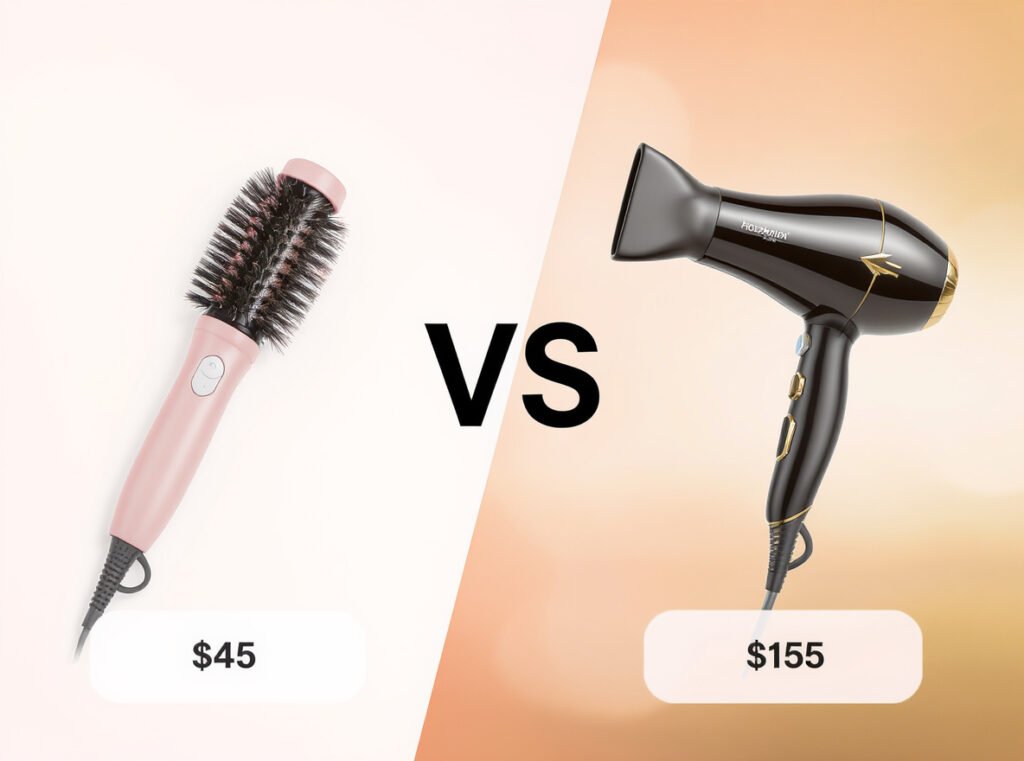Choosing between hot air brushes can feel overwhelming, especially when comparing popular models like Revlon and Drybar. You want salon-quality results without overpaying, but the price difference makes you wonder if premium features justify the investment.
The Revlon One-Step Volumizer ($30-65) and Drybar Double Shot ($155) both effectively dry and style simultaneously, but serve different needs. Revlon runs hotter (200-260°F) and costs 60-75% less, making it ideal for thick hair and humid conditions. Drybar operates at lower temperatures with 1170W power versus Revlon’s 1100W, offering gentler performance, better build quality, and a 9-foot cord compared to Revlon’s 6-foot cord.
Let’s explore the detailed comparison to help you determine which option maximizes value for your wholesale inventory or retail recommendations.
Table of Contents
ToggleWhat Are the Main Differences Between Revlon and Drybar Hot Air Brushes?
Understanding the core distinctions helps you make strategic purchasing decisions that align with your target market segments and profit margin objectives.
The primary differences center on price positioning, technical specifications, and build quality. Drybar features 1170W power, a 9-foot swivel cord, and premium construction at $155, while Revlon delivers 1100W power with higher operating temperatures (200-260°F) and a 6-foot cord at $30-65. Despite similar core functionality, Drybar weighs 2.01 lbs versus Revlon’s lighter 1.63 lbs, affecting user experience during extended styling sessions.
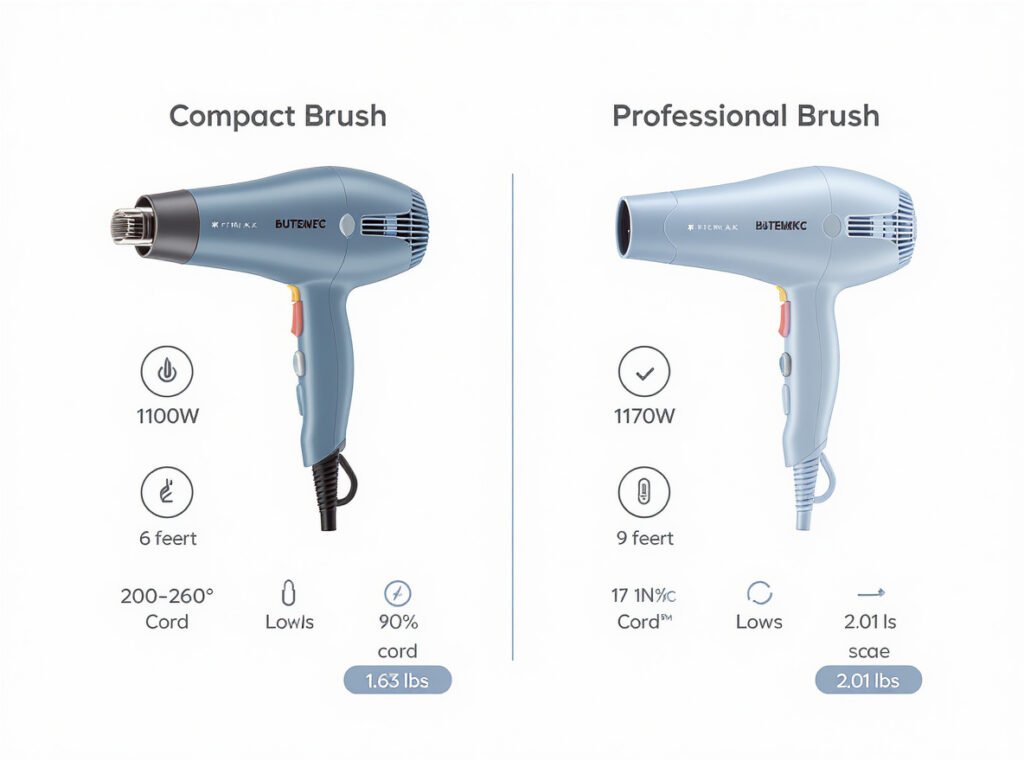
Power and Temperature Specifications
Technical specifications reveal important performance differences. Drybar’s higher wattage (1170W versus 1100W) suggests stronger airflow capacity, but Revlon compensates with elevated operating temperatures between 200-260°F.
This temperature difference creates distinct use cases. Revlon’s hotter operation excels in humid climates where moisture constantly threatens hairstyles. The higher heat also penetrates thick, coarse hair more effectively, making it popular among users with dense hair textures.
Drybar’s cooler operation protects fine or chemically-treated hair from thermal damage. This gentler approach appeals to salon professionals working with delicate hair or clients concerned about long-term hair health.
| Specification | Revlon One-Step | Drybar Double Shot |
|---|---|---|
| Wattage | 1100W | 1170W |
| Temperature Range | 200-260°F | Lower (gentler heat) |
| Cord Length | 6 feet | 9 feet |
| Weight | 1.63 lbs | 2.01 lbs |
| Price Range | $30-65 | $155 |
Design and Usability Features
Cord length significantly impacts styling flexibility. Drybar’s 9-foot cord provides 50% more reach than Revlon’s 6-foot cord, essential for salon stations where outlets aren’t always conveniently positioned near styling chairs.
The swivel cord design prevents tangling during movement around clients. This feature reduces workflow interruptions and extends product lifespan by preventing internal wire damage from repeated twisting.
Weight distribution affects user fatigue during back-to-back appointments. Interestingly, despite Revlon being lighter (1.63 lbs versus 2.01 lbs), some users report Drybar feels more balanced during use, though this remains subjective.
Which Hot Air Brush Provides Better Value for Money?
Value calculations extend beyond sticker price to include performance quality, durability, warranty coverage, and customer satisfaction metrics that affect repeat purchases.
Revlon delivers 80-90% of Drybar’s performance at 60-75% lower cost, representing exceptional value for budget-conscious buyers. However, Drybar’s 2-year warranty, superior build quality, and consistent salon-grade results justify the premium for professional environments or upscale retail markets where customers prioritize performance over price.
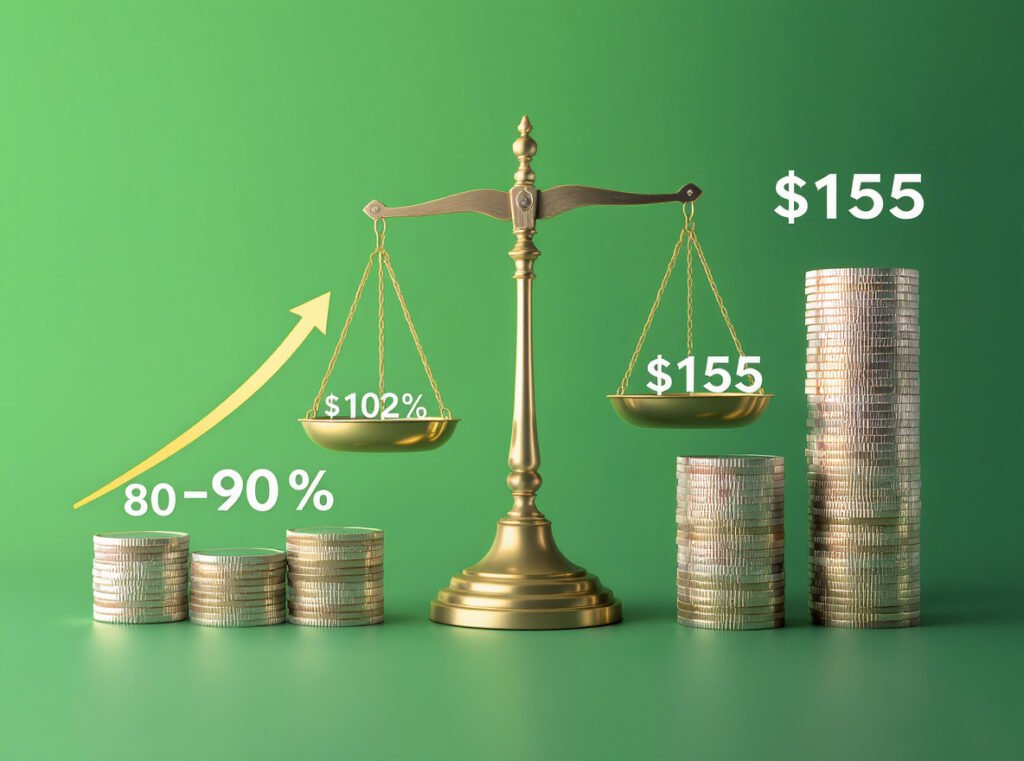
Price-to-Performance Analysis
At $30-65, Revlon dominates the value segment. This pricing allows healthy wholesale margins while remaining accessible to mass-market consumers. Retailers report strong sell-through rates due to the compelling price-performance ratio.
The tool delivers genuine innovation by combining drying and styling functions. Many users achieve satisfactory results comparable to salon blowouts, making it an easy recommendation for price-sensitive customers or those new to hot air brushes.
Drybar’s $155 price point targets premium market segments:
- Professional stylists requiring reliable tools for daily use
- Beauty enthusiasts willing to invest in superior results
- Gift buyers seeking luxury beauty items
- Upscale boutiques serving affluent demographics
Warranty Coverage Comparison
Warranty length affects true ownership costs. Revlon offers an impressive 4-year limited warranty, double Drybar’s 2-year coverage. This extended protection reduces replacement costs over the product lifecycle.
For wholesale operations, longer warranties translate to fewer customer service issues and returns. Stock both options to serve diverse retail partners—from big-box stores to specialty boutiques—maximizing your addressable market and revenue opportunities.
Professional buyers should calculate cost-per-use based on expected lifespan. A $155 Drybar lasting 3-4 years with heavy professional use costs approximately $3-4 monthly, while a $50 Revlon lasting 18-24 months costs roughly $2-3 monthly.
How Do Heat Settings and Performance Compare?
Temperature control and drying efficiency directly impact styling outcomes and hair health, making these critical differentiators when positioning products for specific customer segments.
Both tools offer three heat settings plus cool shot functionality, but their performance characteristics differ significantly. Revlon’s higher temperatures (200-260°F) create 22% more shine compared to traditional methods and excel in humid conditions, while Drybar’s gentler heat and ionic technology deliver smoother, longer-lasting finishes with superior frizz control for delicate hair types.
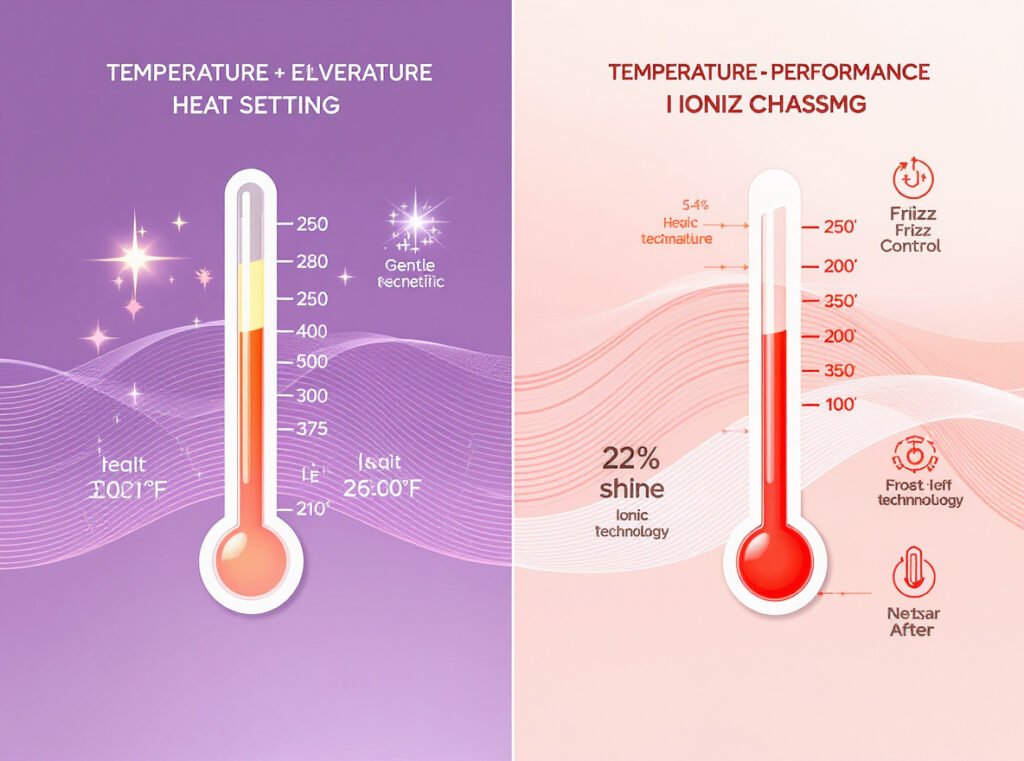
Temperature Control Options
Both brushes provide three heat settings plus cool shot buttons for setting styles. However, their temperature ranges serve different styling philosophies.
Revlon’s elevated heat range suits:
- Thick, coarse hair requiring stronger heat penetration
- Humid climates where moisture affects style longevity
- Quick styling sessions prioritizing speed over gentleness
- Users with resilient, healthy hair tolerating higher temperatures
Drybar’s moderated temperatures benefit:
- Fine or damaged hair requiring thermal protection
- Chemically-treated hair vulnerable to heat damage
- Users prioritizing hair health alongside styling results
- Professional applications where consistent gentleness matters
Styling Results and Longevity
Style durability affects customer satisfaction and repeat purchases. Professional testers report Drybar-styled blowouts typically maintain volume and smoothness for 2-4 days, while Revlon results often show wear after 1-2 days.
This longevity difference stems from Drybar’s ionic technology and cooler heat sealing the hair cuticle more effectively. The smoother cuticle surface reflects more light, creating shinier finishes that last longer between washes.
Revlon compensates with volume creation capabilities. The tool produces 22% more shine than traditional blow-drying methods, though this trails Drybar’s ultimate shine performance. For budget-conscious customers, this represents acceptable performance for the investment.
| Performance Factor | Revlon One-Step | Drybar Double Shot |
|---|---|---|
| Shine Production | 22% vs traditional | Superior to Revlon |
| Style Longevity | 1-2 days | 2-4 days |
| Frizz Control | Good | Excellent |
| Volume Creation | Excellent | Very Good |
| Best Climate | Humid conditions | All conditions |
What Do Professional Stylists Prefer?
Professional preferences reveal crucial insights about reliability under demanding conditions, features that matter in commercial settings, and performance consistency across diverse hair types.
Professional stylists demonstrate split preferences based on specific applications. Hairstylist Gina Rivera recommends Drybar Double Shot as “great for reducing frizz, good for all hair types, and excellent for creating volume,” while stylist Genevieve Garner “absolutely loves” the Revlon One-Step for its effectiveness and value. Drybar dominates professional salon environments, while Revlon leads “best on a budget” recommendations.
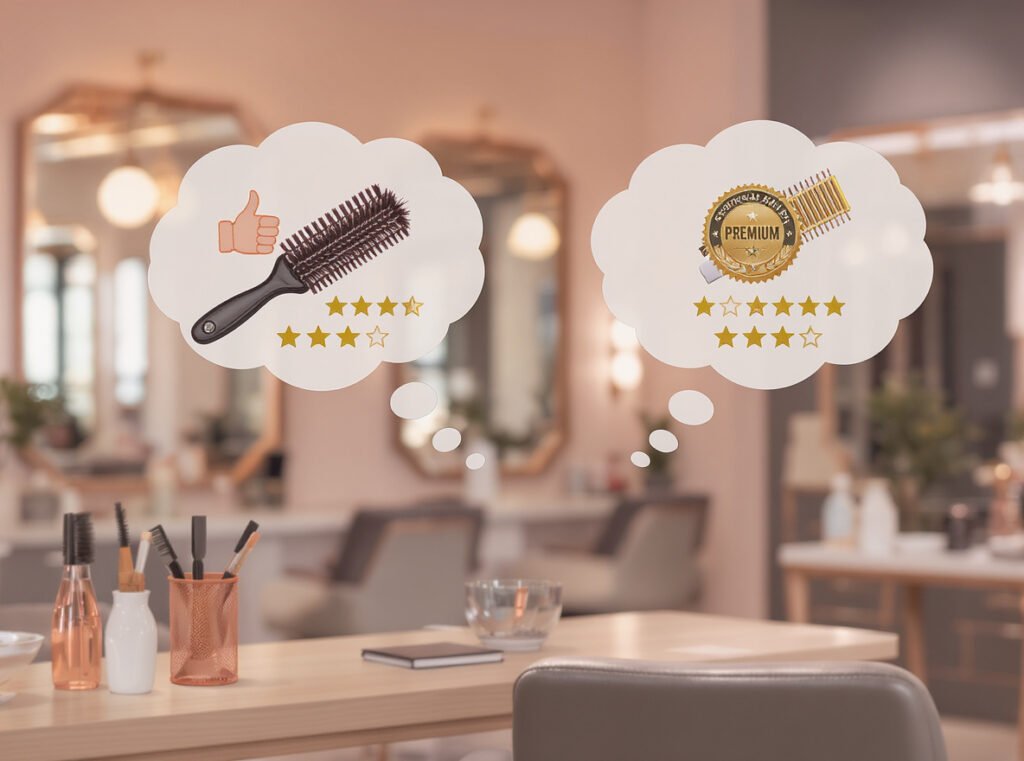
Salon Environment Applications
Commercial settings demand tools delivering consistent results across different hair types and textures. Drybar’s reliability reduces service variability that could undermine client satisfaction and retention rates.
The extended 9-foot cord proves particularly valuable in salon layouts. Stylists move continuously around clients during appointments, and the additional length plus swivel functionality eliminates workflow interruptions from tangled cords or limited reach.
Professional-grade construction withstands intensive daily use. Salons performing 8-12 blowouts daily require tools that maintain performance consistency over thousands of uses. Drybar’s premium materials and reinforced components justify the investment in high-volume environments.
Client Satisfaction Metrics
Stylists prioritize tools that enhance client retention and satisfaction scores. The longer-lasting results from Drybar treatments (2-4 days versus 1-2 days) affect perceived service value and encourage repeat bookings.
However, budget considerations matter for many salon operations. Some professionals maintain both tools—using Drybar for premium services and Revlon for budget-friendly options or as reliable backup equipment.
For your wholesale business, educating retail partners about these professional preferences helps them position products effectively. Drybar serves as the “professional choice” for upscale salons, while Revlon captures the “stylist-recommended budget option” positioning.
Which Hot Air Brush Works Best for Different Hair Types?
Hair type compatibility significantly influences customer satisfaction and product returns, making this essential knowledge for retailers training sales teams and wholesalers advising retail partners.
Fine or damaged hair benefits from Drybar’s gentler heat and ionic technology, preventing breakage while delivering volume. Thick, coarse hair performs better with Revlon’s higher temperatures (200-260°F) that effectively penetrate dense sections. Curly hair users favor Drybar’s superior frizz control through ionic technology, though both tools accommodate medium-density hair successfully.
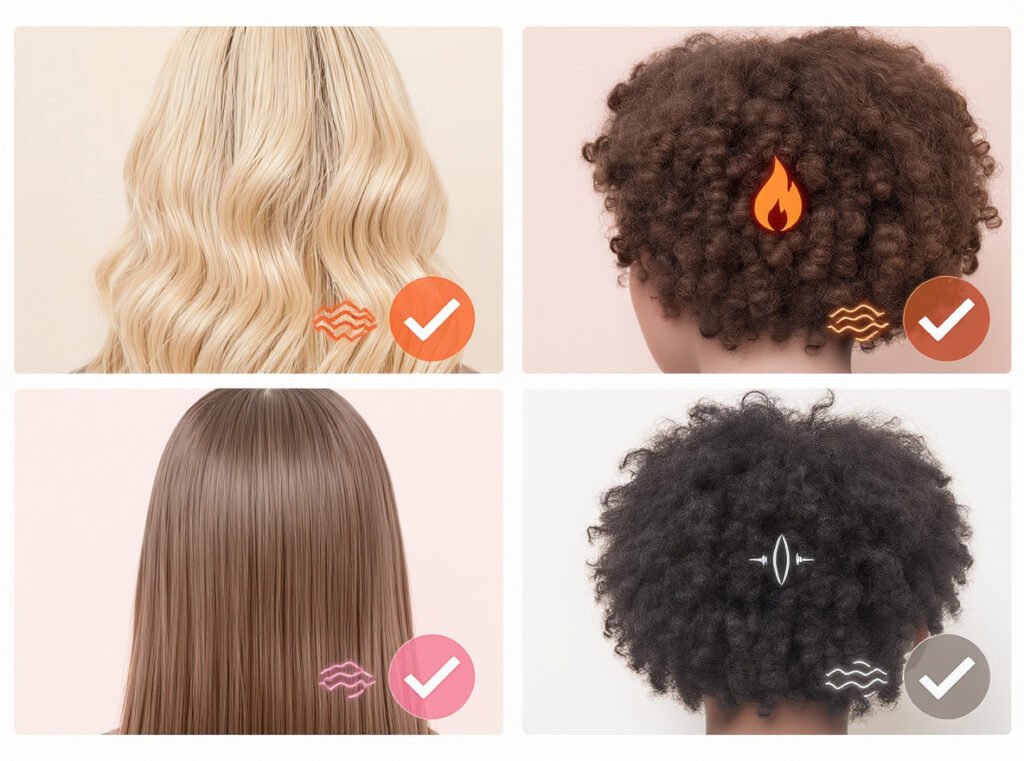
Fine and Thin Hair Considerations
Delicate hair structures require careful heat management to prevent damage and breakage. Reddit users with fine hair specifically report that Revlon’s higher heat settings can cause damage, making temperature selection critical.
Key features for fine hair include:
- Lower temperature settings providing adequate drying without damage
- Ionic technology reducing frizz without aggressive heat
- Lightweight construction preventing tension at roots
- Gentle bristle design minimizing pulling and breakage
Drybar’s cooler operation and ionic technology better serve this segment. The gentler approach achieves volume without compromising hair integrity, important for customers with fragile hair concerned about long-term health.
Thick and Coarse Hair Requirements
Dense hair demands higher heat capacity and stronger airflow. Users with thick hair consistently report Revlon’s elevated temperatures more effectively penetrate through dense sections, reducing styling time and frustration.
Essential features for thick hair include:
- High temperature settings (200-260°F range) for effective drying
- Powerful airflow penetrating multiple hair layers
- Durable construction withstanding frequent, prolonged use
- Effective heat distribution preventing hot spots
Revlon’s specifications align perfectly with thick hair needs. The combination of adequate wattage and higher operating temperatures delivers results that satisfy users with challenging hair textures, as confirmed by numerous professional reviews.
Curly Hair Specifications
Naturally curly hair presents unique challenges, primarily frizz control and moisture retention. Drybar’s ionic technology excels at managing frizz by breaking down water molecules more efficiently, sealing the cuticle for smoother results.
| Hair Type | Best Choice | Primary Reason | Alternative |
|---|---|---|---|
| Fine/Thin | Drybar | Gentler heat prevents damage | Professional tools with adjustable heat |
| Medium | Either works | Both deliver satisfactory results | Based on budget preference |
| Thick/Coarse | Revlon | Higher heat penetrates effectively | High-wattage professional tools |
| Curly/Frizzy | Drybar | Superior ionic frizz control | Professional ionic technology tools |
For retailers serving diverse customer bases, consider recommending professional alternatives like the Conason P1C High-Speed Hair Dryer. This tool combines ionic technology, adjustable heat settings, and powerful airflow suitable for multiple hair types—simplifying inventory management while serving broader customer needs.
Are There Better Alternatives for Wholesale Distribution?
Strategic wholesalers diversify product portfolios beyond established retail brands to capture higher margins, offer customization options, and reduce dependency on brands with significant pricing power.
Wholesale buyers seeking alternatives should consider manufacturers like Mesky Technology (300,000+ units monthly capacity with OEM/ODM services), BaBylissPRO (professional salon distribution networks), Hot Tools (24K Gold technology), and Conair (high-volume mass-market capabilities). These suppliers offer better profit margins and customization options compared to Revlon/Drybar’s established retail pricing structures.
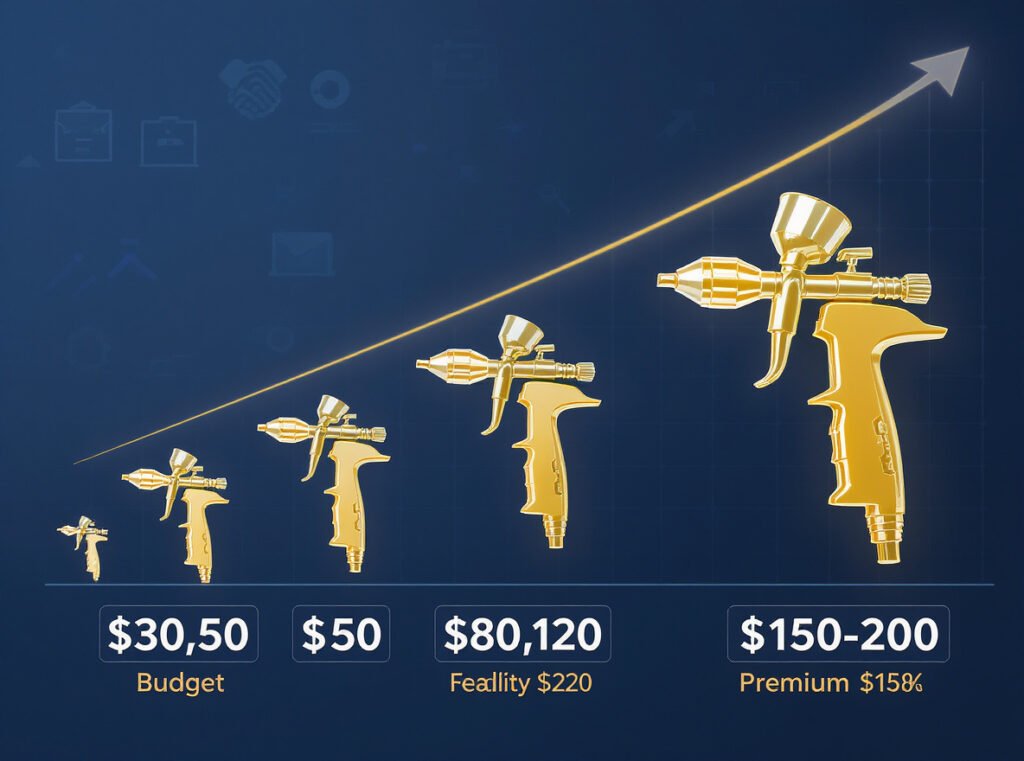
Expanding Your Product Portfolio
Relying exclusively on established retail brands limits profit potential due to their market positioning power and price rigidity. Smart diversification strategies include:
Premium Tier: Professional-grade tools for upscale salons and specialty beauty retailers requiring superior performance and premium branding.
Mid-Range Segment: Balanced performance and pricing capturing mainstream retailers and moderate beauty boutiques seeking reliable, well-featured products.
Budget Category: Value-focused options for mass-market chains and discount retailers prioritizing competitive pricing and acceptable quality.
B2B Customization: OEM/ODM capabilities allowing private label development for retailers building proprietary brands.
Emerging Brand Opportunities
Modern consumers increasingly prioritize hair health technologies alongside styling capabilities. Look for suppliers offering:
Advanced Ionic Technology: Reduces frizz and enhances shine by breaking down water molecules for faster, gentler drying.
Digital Temperature Control: Precise heat management protects different hair types and reduces damage complaints that lead to returns.
Multiple Attachment Systems: Versatility increases perceived value and expands potential customer base across different styling preferences.
Ergonomic Innovation: Comfortable extended use improves customer satisfaction and reduces negative reviews affecting your retail partners’ reputations.
The Conason product line addresses these contemporary demands while maintaining competitive wholesale pricing that supports healthy retail margins. Our manufacturing capabilities enable customization options unavailable with established retail brands.
Explore our product collection to discover professional-grade alternatives that complement your existing hot air brush inventory while improving overall portfolio profitability.
How Do Warranty and Customer Support Compare?
After-sales support directly impacts customer satisfaction, return rates, and your reputation as a reliable wholesale supplier, making warranty coverage and support infrastructure critical evaluation criteria.
Revlon provides a superior 4-year limited warranty compared to Drybar’s 2-year coverage, significantly extending protection against manufacturing defects. Drybar offers comprehensive customer support through (800) 646-4479 and contact@drybar.com with online warranty request forms, while Revlon provides standard manufacturer support at (800) 473-8566 through retail distribution channels.
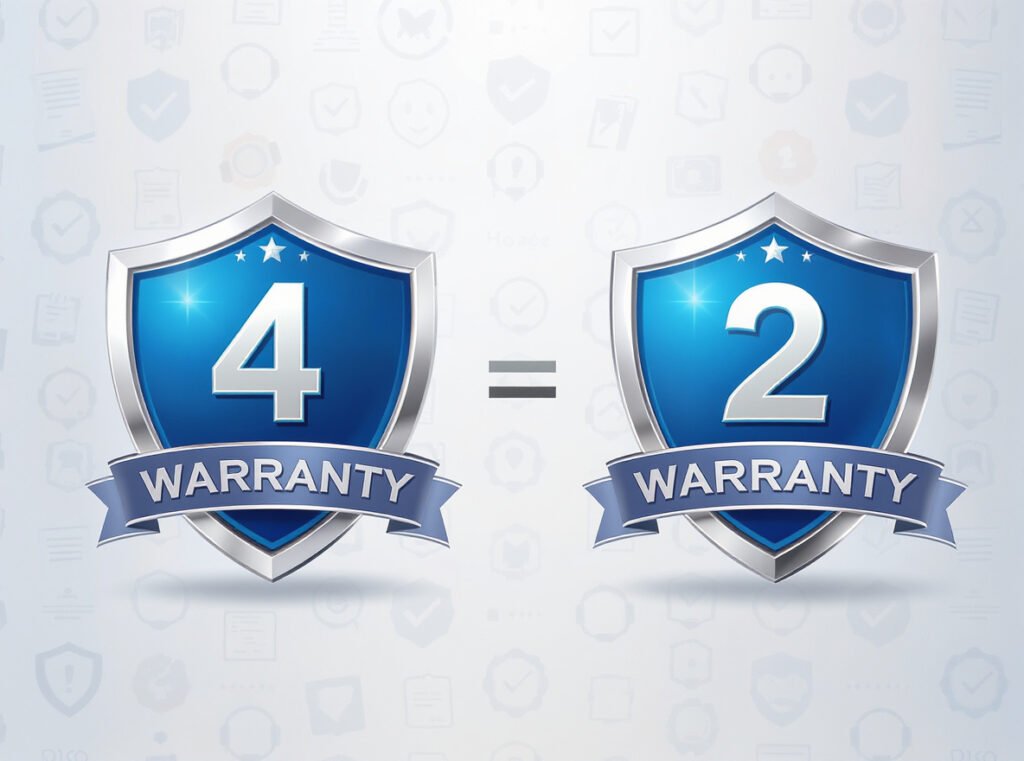
Warranty Coverage Details
Extended warranty protection affects total cost of ownership and customer peace of mind. Revlon’s 4-year coverage represents exceptional value, doubling Drybar’s protection period and reducing long-term replacement costs for consumers.
Both warranties cover:
- Manufacturing defects in materials and workmanship
- Electrical component failures under normal use conditions
- Performance issues arising from factory defects
Standard exclusions include:
- Cosmetic damage from drops or mishandling
- Cord deterioration from improper storage or excessive bending
- Performance degradation from misuse or operating outside specifications
- Normal wear and tear from extended use
Customer Support Infrastructure
Drybar maintains dedicated support channels specifically for tool customers. Their (800) 646-4479 hotline and contact@drybar.com email provide direct manufacturer access. The online warranty request system streamlines claim processing, reducing resolution time.
Revlon operates through broader consumer product support infrastructure at (800) 473-8566. While adequate, the support experience varies depending on purchase location and retail partner involvement in the resolution process.
Managing Wholesale Customer Relations
Your return policies should balance customer satisfaction with operational efficiency. Consider implementing:
- 30-60 day satisfaction guarantees for retail partners
- Rapid defective unit replacement programs minimizing downtime
- Clear documentation requirements preventing fraudulent claims
- Volume-based support tiers rewarding larger customers
Strong manufacturer relationships enable quick issue resolution, protecting your reputation as a dependable supplier. When you stock diverse brands including innovative options like Conason, you demonstrate market expertise and commitment to comprehensive solutions that build long-term partnership value.
Summary
The Revlon One-Step Volumizer and Drybar Double Shot both deliver effective hot air brush performance but serve distinct market segments. Revlon excels at $30-65 with higher temperatures (200-260°F), a 4-year warranty, and outstanding value for thick hair and budget-conscious buyers. Drybar justifies its $155 premium with gentler heat, superior build quality, a 9-foot cord, and longer-lasting results for fine hair and professional applications.

Ready to diversify your hot air styling tool inventory beyond traditional retail brands? Browse our complete product collection or contact us for wholesale pricing on professional-grade hair dryers featuring advanced ionic technology and competitive margins. Our team helps you identify the optimal product mix to maximize profitability while serving your retail partners’ diverse customer bases with cutting-edge styling solutions.

